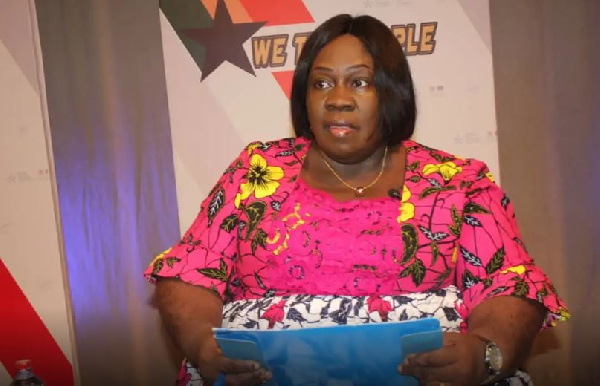Civil society organisations (CSOs) and non-governmental organisations (NGOs) have been charged to be agile and responsive to emerging trends of people’s rights and equitable access to development in order to attract the needed funding from donors.
This, according to Dr. Esther Ofei-Aboagye – a seasoned researcher, policy analyst and a development management expert, has become necessary in an era when the sector is faced with dwindling funding sources.
“Institutional leadership for national NGOs in the West African sub-region must develop the capacity to be predictive and be able to forecast the critical factors that can affect their organisations. I think a critical case in point is the funding landscape. We find that a lot of NGOs and CSOs are struggling to diversify their resources, exploring who is out there and trying to maintain their focus.
“Over the years, partnerships have been diversified in interesting ways – including funding sources. If you look at the way funding landscapes and trends have shifted over the last five years, resulting in downturns because of the weakening flows of financial economies and shorter periods for specific partner interests, you will see that being swift in exploration is a matter of survival,” she said.
Dr. Ofei-Aboagye made the call in a presentation at a public lecture held in Accra, in commemoration of SEND West Africa’s 25th anniversary themed ‘25 Years of Championing Transformative Advocacy and Livelihood Security for the Poor and Vulnerable’.
While remaining focused on organisations’ vision and benefits of being agile, the Speaker also advocated adoption of a multifaceted and multi-stakeholder approach to delivering their mandates by going beyond just service delivery. With this approach, she cited some of SEND’s approaches that are worth emulating.
“Development organisations have to be multipurpose in their orientation. The pressure has been on NGOs and development organisations to get out with service delivery; but after we continue and we do advocate and take the people along, they need critical services on their doorsteps. But how do you do this without spreading your efforts too thin?
“The focus of good governance that has engaged development organisations over the last decade is critical. It has underpinned the advocacy and engagement efforts of SEND and other organisations.
“But there is still an urgent need to make a difference in the services available to people in their day to day lives, so there is still a case for non-state agencies to construct support services alongside their rights-based advocacy. Such livelihood work has proven innovative and impactful.”
According to Dr. Ofei-Aboagye, while maintaining its original focus and vision, as emerging events bring out new areas of vulnerability, people’s rights and wellbeing, SEND’s experiences over the years have also indicated that viable and mutually beneficial relationships can be formed between state and non-state entities at all levels.
Tapping into local sources
According to the speaker, changing trends in funding sources for CSOs’ and NGOs’ operations have also necessitated a need to not only look at international donors but also work at attracting local funding sources.
“While they are interested in all of this, they must also support and highlight the nuances that will foster local philanthropy in engaging various philanthropic entities and funding facilities,” Dr. Ofei-Aboagye urged.
Source: thebftonline.com

